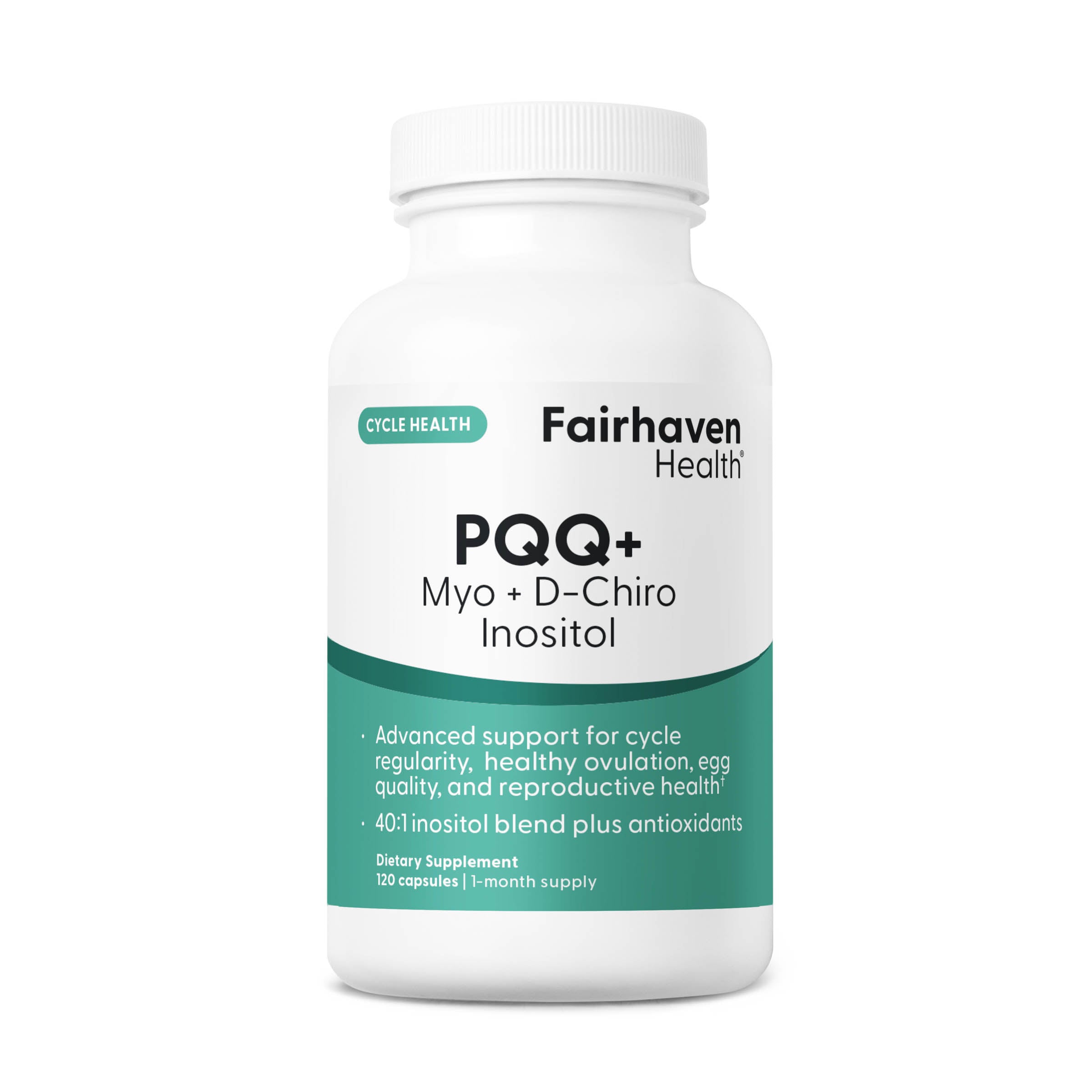Why is infertility commonly considered to be a woman's problem? Why is this not necessarily true? Please provide some research to support this.
This is an interesting question. I am not sure if anyone really knows "why" infertility is most often considered to be a woman's problem, but it is certainly the case that all parties involved (women, men, and doctors) are quick to focus first on the reproductive health of the woman when a couple is struggling to conceive . This is despite the fact that, according to the American Association for Reproductive Medicine, the male is either the sole cause or contributing cause for roughly 40% of a couple's infertility issues. Another common statistic often quoted online is that 30% of infertility cases are due to the female partner, 30% to the male, and the other 40% attributable to both partners or unexplained.
Unfortunately, this misguided perspective about the source of infertility has definite emotional and financial consequences. Many women endure a litany of exams and tests at a tremendous cost before doctors even suggest taking a look at the male partner. It can be discouraging for couples to exhaust their financial and emotional resources on fertility exams for the woman, only to find out months later that she is perfectly healthy and they need to start assessing the fertility of her partner. We talk daily to many customers who are struggling to conceive (the majority of which our women) and most will express concern over their cycles, age, ovarian reserve, etc. One of the first questions we always ask is, "has your partner had a sperm assay done?" Unfortunately, the answer is too often "no".
What are some common male fertility problems that affect a couple's ability to conceive?
Suboptimal sperm health is the biggest cause of male fertility issues. Sperm health is assessed primarily by looking at three parameters: sperm count,sperm motility, and sperm morphology. If any of these three measurements of sperm health fall outside of normal ranges, it can be an indication that conception will be difficult.
- Sperm count refers to the number of sperm cells present in a milliliter of semen. Anything below 20 million sperm per milliliter of semen is considered to be a "low" sperm count, also called oligospermia. Severe oligospermia is typically defined as a sperm count less than 5 million sperm per milliliter of semen. Azoospermia is defined as the complete absence of sperm in ejaculate.
- Sperm motility is defined as the forward, swimming motion of sperm. In order for a sperm to reach the egg after ovulation fertilization, it must travel quickly through the female reproductive system, which requires a strong swimming action. "Normal" sperm motility is typically defined as 50% of observed sperm, or at least 8 million sperm per milliliter of semen, showing good forward movement. When sperm motility is suboptimal, fewer sperm are able to reach the egg, making conception less likely to occur. Poor sperm motility is called asthenozoospermia.
- Sperm morphology refers to the size and shape of sperm. Abnormally shaped sperm may have difficulty fusing with the egg, thereby decreasing the chances of successful fertilization.
Low sperm count can be caused by testicular failure, hormone deficiencies or imbalances, varicocele (an abnormal enlargement of the veins in the scrotum) and/or a blockage in the duct system that carries sperm. See below for additional information on screening for these problems.
Another key contributor to poor sperm health is oxidative stress. Oxidative stress is a physiological condition that develops when the number of reactive oxygen species (frequently referred to "free radicals") produced or present in the body overwhelm the "antioxidant" mechanisms the body utilizes to neutralize these unstable compounds. To clarify, free radicals are unstable oxygen molecules that are formed during normal physiological processes (for example the immune system produces free radicals when fighting infections and the body's detoxification systems produce free radicals when breaking down toxins), and the body has mechanisms in place to neutralize free radicals so they don't cause cellular damage. But, when there is an imbalance between the amount of free radicals produced and the amount of antioxidants present to counter the dangerous effects of these compounds, oxidative stress develops andcellular damage occurs. Unfortunately, as it turns out, sperm cells have less effective antioxidant mechanisms than other types of cells to keep free radicals at bay, and are especially vulnerable to damage from free radicals due to the high amounts of fats contained in their cell membrane. Because our modern lifestyle (stress, poor diet, exposure to environmental toxins) sets the stage for lots of free radical production, sperm cells often live in a continual state of oxidative stress - leading to reduced sperm count, poor sperm motility, and even DNA damage. Researchers now believe that up to 80% of all cases of male infertility can be attributed to oxidative stress.
The good news is that there are lifestyle changes as well as certain vitamins, minerals, antioxidants and amino acids that can help strengthen these sperm parameters.
How can couples determine why they might be having trouble conceiving? What kind of specialists or tests can help them pinpoint the problem?
Most doctors will not even consider initiating a fertility workup until a couple has been actively trying to conceive without success for more than a year - or 6 months if the woman is over the age of 35. Certainly, if a woman haa history of irregular menstrual cycles, ovarian surgery, or polycystic ovarian syndrome (PCOS) she might consider from the outset that conception may be more difficult for, and take a very proactive approach with her doctors related to how long she should "try" before beginning a fertility workup.
With infertility now impacting 1 in 6 couples, every major city has at least one fertility clinic. A couple interested in seeking fertility advice can start by asking their regular health provider for a recommendation to a fertility specialist in the area, or chances are, at least one of their friends knows a fertility specialist.
Many fertility doctors will begin a female fertility work up by testing for various hormones (including follicle stimulating hormone, luteinizing hormone, progesterone, estrogen and testosterone), as hormonal imbalance is a contributing factor to female infertility.
Next, a woman might undergo a hysterosalpinogram (HSG) to be sure her Fallopian tubes are clear and her uterus is healthy. And, at various times throughout her menstrual cycle, her doctor might want to perform a vaginal ultrasound to measure the growth of ovarian follicles, to evaluate the appearance of her uterine lining, and to see if ovulation is occurring successfully.
For men, the first step is typically a comprehensive semen analysis. In addition to evaluating sperm count, motility and morphology, a comprehensive semen analysis will determine semen volume and semen pH, and will look for the presence of white blood cells (indicating infection) and fructose (fuel for sperm cells).
If any of these factors fall outside of normal ranges, further investigation will be done to determine the cause. If sperm count is low, the fertility specialist might look for hormonal imbalances or the presence of a varicocele (an abnormal enlargement of the veins in the scrotum where blood pools). Low sperm count can also be caused by "sperm delivery complications" that prevent sperm from leaving the body in the ejaculate, such as the absence of, or blockage in, the ducts that carry sperm. And, if there are too many white blood cells present, the infection will be treated.
While prescription medications and invasive treatments such as IVF or IUI are certainly necessary in many cases, unfortunately we see too many couples being pushed down this path prematurely. In fact, an Australian study published in the Journal of Advanced Nursing reported that only 13% of women seeking fertility treatment could correctly identify their fertile days each cycle (the 4 or 5 days before, and including the day of, ovulation when pregnancy can be achieved). The study concluded that many medical professionals were recommending procedures like IVF over basic infertility education or natural supplementation.
Please provide four to five "mainstream" factors that affect a couple's ability to conceive (such as stress, diet, etc.) and explain how these issues can cause infertility.
One of the major obstacles to conception is actually quite simple to overcome - lack of fertility awareness. When it comes to fertility - timing is everything. So, the more a couple knows and understands about the woman's menstrual cycle, the better chance they have of timing intercourse at the right time. A couple can decrease the time to conception by knowing when she ovulates, and by having intercourse in the few days before and on the day ovulation. There are many ways to predict ovulation - charting basal body temperature (BBT), watching for cervical mucus changes, using urine-based ovulation prediction kits (OPKs) or an electronic fertility monitor. A growing trend is for women to conveniently track all these fertility indicators in one place with free online tools such as www.ovagraph.com.
As discussed previously, oxidative stress has a huge impact on sperm health - and, unfortunately, oxidative stress also decreases the egg quality. And, again, oxidative stress occurs when there is an imbalance between the amount of free radicals produced and the amount of antioxidants present to counter the dangerous effects of these compounds.
So, oxidative stress can be reduced by both decreasing the free radical load on the body and by increasing the antioxidants present. As a result, making a few lifestyle changes can go a long way in helping men and women improve their fertility. Smoking, excessive alcohol consumption, obesity, and chronic exposure to environmental pollutants all increase the free radical load in the body. And, increasing vegetable and fruit intake, and supplementing the diet with antioxidant nutrients, can help ensure the body has the sufficient antioxidants on board to prevent free radical damage.
Here is a list of lifestyle changes that can help improve male and female fertility:
- Determine when you ovulate, and time intercourse appropriately.
- Stop smoking.
- Drink alcohol moderately.
- If you are overweight, lose weight through moderate calorie restriction and moderate exercise.
- Reduce your exposure to environmental toxins by using cosmetics, cookware, and household products (cleaning and gardening supplies) that do not contain so-called "endocrine disrupting" compounds (e.g. BPA, parabens, phthalates).
- Increase your intake of fruits and vegetables.
- Supplement your diet with key antioxidant nutrients, for example: CoQ10, Vitamin E, Vitamin C, alpha-lipoic acid, grapeseed extract. We make a number of doctor-designed fertility supplements to address specific issues such as cycle irregularity, egg quality, cervical mucus production and sperm parameters such as low count or motility.
How should couples approach these problems as a couple, rather than assigning blame to one party? What can you do to support your partner if he is infertile?
Infertility is no fun! It's really a catch-22, stress can negatively impact fertility yet trying-to-conceive can be very stressful. That said, blaming each other won't help the situation any. If your partner is truly infertile, you will need to decide as a couple what, if any, lifestyle changes, natural treatment options or assisted reproductive technologies you will move forward with.
We can't stress enough that if your partner's fertility is less than optimal, but you desire to try to conceive naturally before moving towards fertility treatments, it is important to remember that the lifestyle factors that can help his fertility will also help yours. Work on changing your diet together, start exercising together, quit smoking together. By doing these things as a couple, he will feel supported and you will both experience the benefits of improved health.







